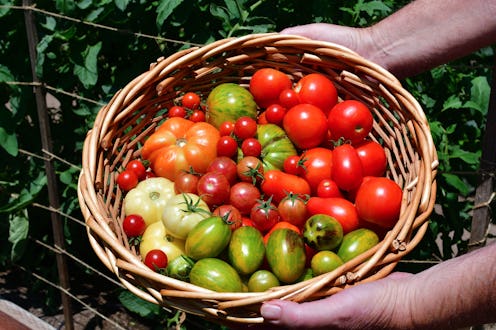Life
7 Interesting Facts About Being Vegetarian

Oct. 1 marks World Vegetarian Day, and if you're considering becoming a vegetarian yourself, there's no better time to look into the facts than now. These seven interesting facts about being a vegetarian might surprise you, or they might not. Either way, they're sure to up your education on vegetarianism, and what it can do for you and your health.
If you already are a vegetarian, it's time to enjoy your day. It's never too late to learn a new fact or two about your dietary practices, and these seven will likely send some new knowledge your way. From knowing where the world's most highly vegetarian population lives to being familiar with the diseases that being a vegetarian can help prevent, there's tons to learn on the subject.
Being a vegetarian in today's day and age is a lot easier than it ever has been, and that's because more and more people are realizing the amazing health benefits, as well as global health benefits, that come with being a non-meat eater. Not to mention, restaurants' menus are expanding regularly to include more vegetarian options that get way more creative than salad bowls and pasta. If there ever was a time to go vegetarian, it might just be now. Consider it!
1. Most of the world's vegetarians live in India.
Vegetarianism has been most linked to Ancient India, rooted in its culture and religion. Even today over 70 percent of the world's vegetarians are in India. India is also ranked as the lowest consumer of meat in the world.
2. You lower your chances of heart disease and cancer when you're a vegetarian.
Vegetarianism is often viewed as being a healthier diet option for humans. Along with lowering your chances of heart disease and cancer, vegetarians also generally have lower blood pressure, fewer cases of type 2 diabetes, and are less likely to have osteoporosis.
3. An acre of land can produce more food for vegetarians than meat-eaters.
It's no joke that vegetarians make better use of land, and going meatless tremendously cuts one's dietary carbon footprint. An acre of land can yield up to 10 times more plant proteins than that of meat raised in the same square footage.
4. Research shows that a child's IQ can help predict if he or she will be vegetarian.
British research has actually shown that a child's IQ can help to predict how likely he or she is to become a vegetarian in their lifetime. The smarter the child, the more likely they'll become a vegetarian as a young adult.
5. Only five percent of the United States is vegetarian.
Approximately 16 million U.S. citizens consider themselves vegetarian, making up close to five percent of the country's total population. Of those 16 million, 7.5 million of them are vegans, abstaining from all animal products.
6. Vegetarians may have a better chance at reproducing.
Vegetarians may have more "productive sex," as red meat has been linked to decreased sex drive as well as lower blood flow. These two problems often lead to erectile dysfunction. It has also been reported that sperm quality might be better in vegetarians than meat-eaters.
7. Our saliva is not meant to break down animal flesh.
We may not have actually been made to eat meat, as our alkaline saliva is not meant for breaking down animal flesh. Conversely, carnivores have acid saliva which is made to break down animal flesh.
Images: Barbara Rich/Moment/Getty Images; Giphy